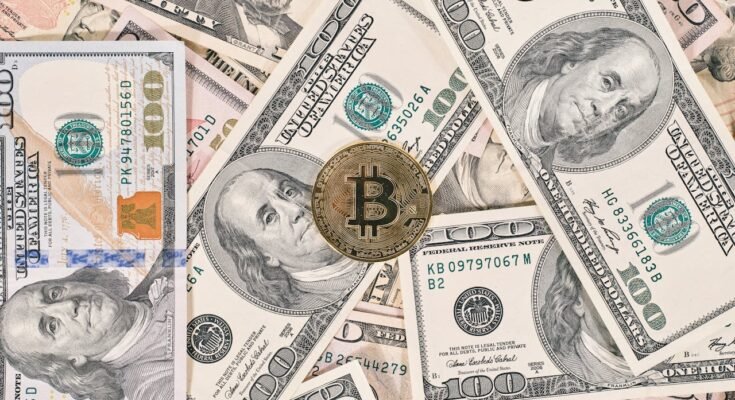In today’s global economy, the interaction between consumers and money is of cardinal importance for the seamless functioning of any marketplace. Consumers exchange their money for goods and services: such an exchange is primal in any marketplace. This interfacing goes beyond just a transaction-it is part of a whole system driving economic growth, business innovation, and resource distribution. Therefore, one-dimensional interaction among consumers, businesses, and the mechanisms of exchange must be better understood.
1. Consumer Role in the Economy
Consumers form the generator of demand for every economy. They are in pursuit of earning income with which they buy the good or service that emerges to solve their needs, desires, and particular problems. Consumption here is considered work-life support that transforms direct consumption into full-blown industries and big markets. Therefore, consumers primarily govern high-level economic production since the supply chain, product pricing, and general production direction are all influenced by consumers who spend money.
2. The Exchange Process: Money as the Medium
The exchange process that the consumer participates in sees money becoming the mutual mode of transaction thus eliminating any intractability attendant to barter systems. Consumers now access products using their currency; be it essential foodstuffs, clothing, all the way to luxurious electronics and entertainment. This exchange is widely considered fair: money holds a value agreed upon by all in society whereas goods and services equal or exceeding that value are such that they are consumable by consumers.
3. The Role of Money in Consumption
Beyond its face value, the money stands for buying power, which may change according to inflation, currency exchange rates, and interest rates. The value of money has a direct relationship with consumer spending. When the economy is stable, with low inflation, consumers are more likely to act because they possess purchasing power. In contrast, consumers may be less willing to spend during troubled economic times; instead, they may prefer saving and investment.
4. Consumer Demand and Business Supply
On the other side of the exchange, a business is responsible for satisfying consumer demands. Businesses should seek to offer a good or service that consumers want at prices that reflect some perceived value. These businesses can also adapt to the modification of consumer behavior in a variety of ways, whether through innovation of product, pricing, or marketing.
Along with selling products, businesses shape consumer desires. Sales promotion, branding, and social media create a desire for one product over other products in the marketplace by creating an aura of value and desirability. Added to these are convenience, customer service, and quality in the vendor’s policies to serve the customer’s interest and induce repeat purchases.
5. Evolution of Consumer Expectations
Technological sophistication and a more intertwined world economy have transformed consumer expectations. Consumers in today’s marketplace are demanding not only superior quality products out of purchase but expect ethical sourcing, sustainability, and personalized experiences. Such development made necessary ethical sourcing and supply chain accountability, leading to innovations in supply chain management that were developed to relieve performance pain.
Moreover, the explosion of e-commerce brought forth an additional round of change to the terrain in the sense that any shopping can happen at any time of day, anywhere in the world-a shopper can have at his or her fingertips an unlimited amount of inventory that might not even be present in the local marketplace. Suddenly, the phenomenon of online shopping, along with the extreme convenience and speedy delivery times, created an atmosphere in which it became socially permissible for consumers to expect instant and transparent return or transport.
6. Psychological Aspects of Buying
Money will come to be regarded not only as a medium through which consumer wants can be satisfied but will be closely connected with what psychologists study regarding different patterns of expenditure and time investment in addition to energy investment. Certainly, price- and value-calculation influence one way or another, especially for those belonging to the middle to upper economic strata of society. There are other forces that give meaning to feeling-led decisions; long-standing cultural and social factors that give value to possessions. For many people, spending money is a way of presenting themselves or, in some cases, meeting emotional needs like self-actualization or social status. Everything that furthers this understanding at the level of psychology is an invaluable addition to aiding businesses in deciphering consumer behavior, hence creating viable models for marketing.
7. Looking at It Through the Lens of Ethics
Consumer empowerment through a currency creates a growing awareness of ethical consumption issues. Fair trade, corporate responsibility, and environmental sustainability are becoming increasingly important in the decision-making process. Consumers are now cognizant of the effects of their purchases on the world before deciding where to take their business in order to support a company with which they feel a shared ethos, even if it costs them more.
Consider the rights of consumers that will protect them in a transaction of any variable or scale. Many countries have enacted laws to protect consumers by forcing businesses to deliver what they promise and avoiding misleading consumers. These protections help understand that the consumers will have greater trust in their choice, in turn leading to fair and smooth processing of transactions.
8.Consumer-Money Exchange Trends
In the future, the consumer-money exchange is going to change in the scope of the game. Digital currencies, especially the cryptocurrency, and advancement in artificial intelligence will change the way transactions are carried out. Consumer purchasing will subsequently rely more on instant technology, including things like biometric authentication and use of blockchain systems. Added to this in the coming years, while consumer-purchasing trends will increasingly swing toward customized experiences, the use of big-data and AI can allow businesses to predict demand by providing tailored offerings.
Conclusion
What is fundamentally an exchange of money for goods and services remains a simple yet powerful force! It is becoming a vast network that builds the entrepreneurship of modern economies on the far-reaching perspectives of transaction techniques, business innovations, consumer behavior, and differing ethical considerations. The exchange is continuing to change, and adapting to both competing expectations and applications by users and merchants will surely help to make the money pool a sustaining factor for growth and satisfaction in marketplace connectivity.



